The Russian Government blocked Indigenous Russia immediately after the EMRIP session
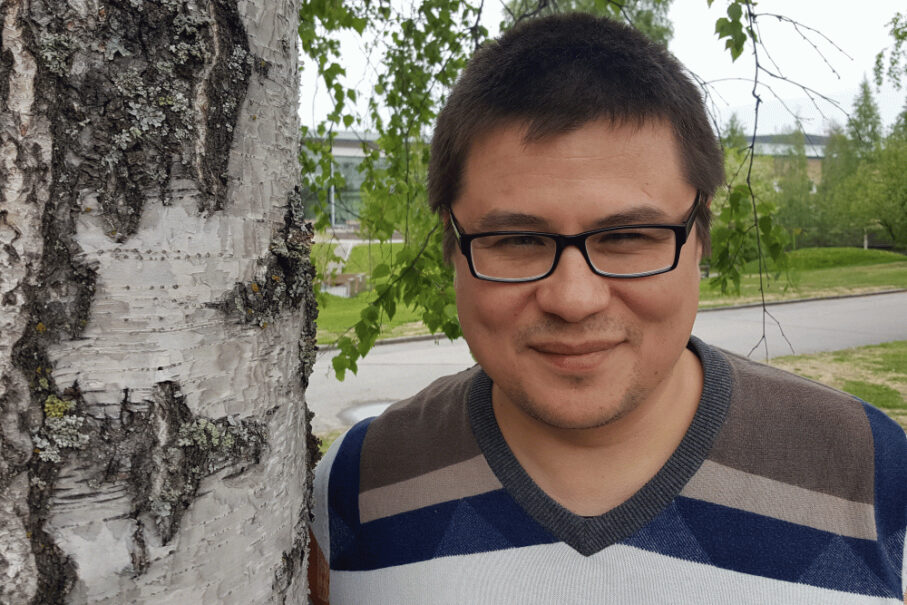
My name is Dmitry Berezhkov, and I am the editor-in-chief of the Indigenous Russia web page. This web page was created several years ago as a small blog to follow indigenous rights development in Russia.
Today iRussia is an information center whose main aim is to deliver information about the Russian indigenous issues to international audiences and provide information back about international events for indigenous communities in the Russian Arctic, Siberia and the Far East, both in Russian and English. iRussia today is also a data center that preserves information about indigenous rights violations in Russia and keeps information for further use by human rights defenders, journalists, researchers, politicians and other interested stakeholders.
Keeping data is a critical job during times when the Russian Government is trying to stop information dissemination, cover the truth and block independent points of view. Countless times we met with the situation when Russian authorities or their vassals tried to delete or distort Internet information about indigenous rights violations or environmental pollution in Russia. That is why our small team of editors and correspondents strongly believes that such work is essential both for Russia and its indigenous peoples, as well as for the international community.
Indigenous Russia also produces reports alone or in partnership with our allies on indigenous rights for the international audience, UN human rights bodies and Russian authorities themselves. We think this is an important tool for changing and strengthening the means to protect the rights of indigenous peoples in Russia.
But because of this activity, I could say that Russian authorities, as well as big Russian corporations, don’t like Indigenous Russia. Today as Russian Federation has started a Great War against Ukraine, we can say that iRussia became the last independent media that publishes strong criticism of the Russian authorities and Russian corporations for violations of indigenous peoples’ rights in Russia on a daily basis. Frankly speaking, they even hate us for our job today. This hate became even more after the start of the Russian war against Ukraine as iRussia supported the establishment of the new international organization – the International Committee of Indigenous Peoples of Russia (ICIPR), which openly spoke against the war and appealed to indigenous soldiers in the Russian army to not participate in hostilities.
As you maybe know, two weeks ago, the UN Expert Mechanism on the Rights of Indigenous Peoples organized its 15th session in Geneva. On the first day of the session, one of the ICIPR members – Yana Tannagasheva, made a statement in which she critiqued Russian authorities and mining companies in the Kemerovo region and Taimyr for violations of indigenous peoples’ rights. Her report triggered an aggressive response from a high-level Russian official, the Deputy Director of the Human Rights Department of the Russian Ministry of foreign affairs Sergey Chumarev, right in the EMRIP session hall.
This unprecedented incident of aggressive play of the state official against an indigenous delegate provoked hot discussion among participants and was reflected in many publications during and immediately after the EMRIP session. Many states and indigenous representatives expressed their support for Yana Tannagasheva and protested against the aggressive behavior of the Russian state officer.
I am personally as a member of ICIPR and an editor of Indigenous Russia made a statement with the protest against such actions of the Russian state delegation during the second day of the forum. And within several hours after that, I received a letter from the legal department of WordPress, an iRussia hosting provider and one of the biggest world internet companies:
“Hello,
A Russian authority — the Federal Service for Supervision in the Sphere of Telecom, Information Technologies and Mass Communications (ROSKOMNADZOR) — demanded that we disable the following content on your WordPress.com site: https://indigenous-russia.com/.
Typically, we would comply with orders such as this to keep WordPress.com accessible for everyone in Russia.
However, we do not believe that this specific order has been submitted in good faith by the Russian Government, and so we are not complying with their demands.
For your reference, we included a copy of the complaint below. No reply is necessary, but please reply if you have any questions.
Thank you.”
I believe that was the immediate reaction of the Russian authorities to the words of truth in the UN building. The Russian Government ordered to delete the whole web page within 24 hours. Below we publish the entire Roskomnadzor’s letter, which was sent to WordPress. This is interesting that they didn’t ask to delete some definite articles which, according to their understanding, violate the Russian legislation. Instead, they demanded to delete the whole website.
To WordPress credits, it didn’t follow the order of the Russian Government, so our web page continues to work but only for the international audience, unfortunately. Two days after that letter, we started to receive messages from our Russian readers that they couldn’t reach the web page as ROSKOMNADZOR included iRussia into the list of prohibited web resources and bunned the access for the Russian audience.
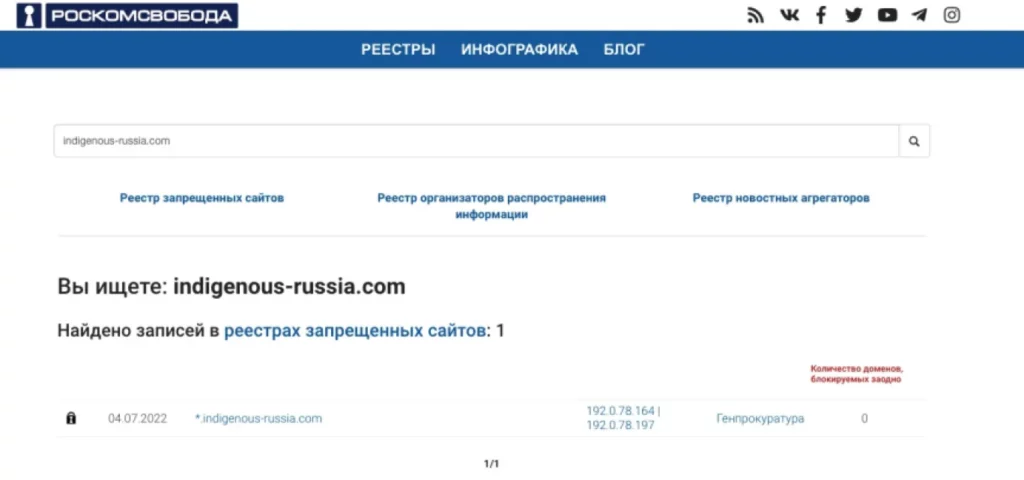
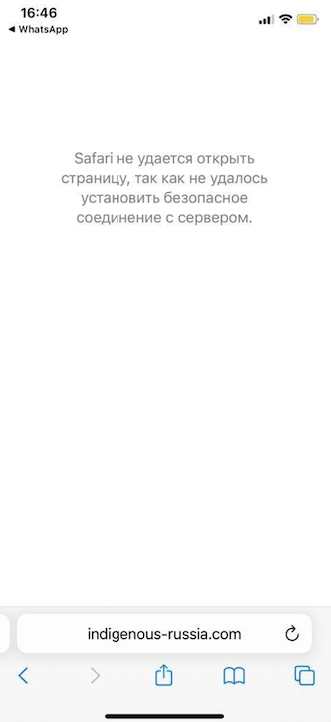
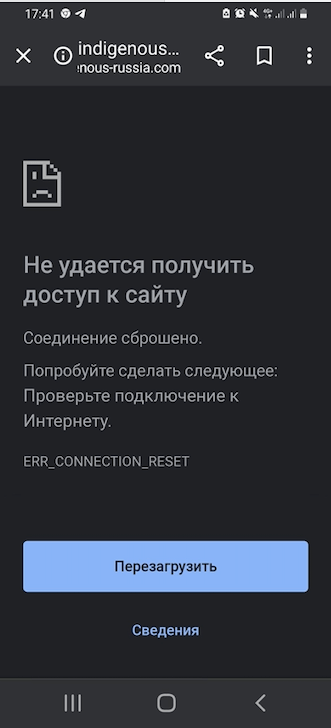
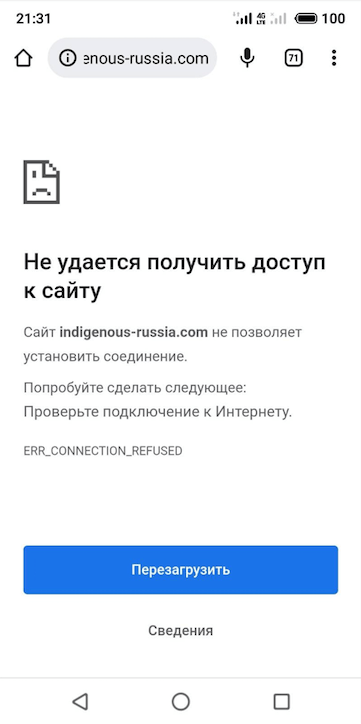
This is how the Russian Government protects its own citizens from receiving “dangerous” information about the indigenous peoples’ rights. However, we continue to work for our Russian readers and international ones. We will develop our social networks accessible in Russia: WhatsUp, Telegram, YouTube channels, email lists, and other means available for remote indigenous communities.
I hope you will continue to receive unbiased, timely and accurate information about indigenous rights in Russia and international development in this sphere.
I would like to end this address at this point but must add one more unfortunate but necessary fact. As far as we know, the Russian authorities received the formal request to block Indigenous Russia from RAIPON – the Russian Association of Indigenous Peoples of the North. This is the oldest and biggest Russian indigenous organization where we all worked some years ago, whose main aim, according to its Statute, is protecting indigenous rights and which now become an obedient instrument of any orders by the Russian Government.
Dmitry Berezhkov. An address to readers.